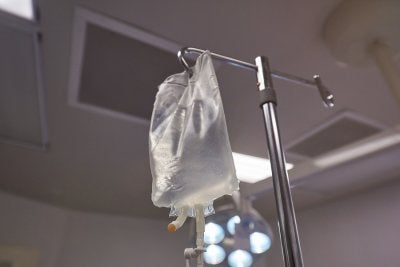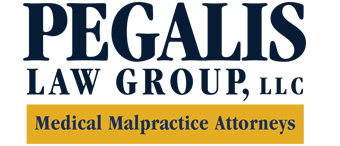-
What Are the Symptoms of Sepsis?
Sepsis is a life-threatening condition that results when the body is trying to fight off an infection, causing injury to its own tissue and organs. If a medical professional who is providing care for you has failed to identify sepsis, it may be considered medical malpractice. It’s important to know what the warning signs of sepsis are so that you can seek treatment right away if you experience them. The symptoms of sepsis include sudden fever or low body temperature, breathing much more quickly than usual, a rapid heartbeat, feeling severely confused or disoriented, and finding yourself short of breath. If you have more than one of these symptoms, treat it as a medical emergency.
 If you are concerned about a misdiagnosis or possible medical error, contact the law firm of Pegalis & Erickson, LLC, in New York. For 45 years, we have advocated for people of all ages, in order to help our clients financially and make healthcare safer for everyone. You can reach us today by calling (516) 684-2900.
If you are concerned about a misdiagnosis or possible medical error, contact the law firm of Pegalis & Erickson, LLC, in New York. For 45 years, we have advocated for people of all ages, in order to help our clients financially and make healthcare safer for everyone. You can reach us today by calling (516) 684-2900.Attorney Advertising
-
How Long Do You Have to File a Medical Malpractice Lawsuit?
If you are considering filing a medical malpractice suit, one of the first things you’ll need to know is how long you have to do it. The time for bringing a lawsuit is called the statute of limitations. If the statute of limitations expires, you cannot file a lawsuit. The rules governing when you can file a medical malpractice suit differ from state to state. In New York, there are different time limits to file a lawsuit based upon the entity, whether the injured party is a minor or an adult, and also whether the person is alive or deceased. Time limits in which to bring a lawsuit are often complicated. To ensure that you don’t miss the deadline, talk to an experienced medical malpractice attorney as soon as possible after you suspect that you have been treated negligently.
 If you are concerned about a misdiagnosis or possible medical error, contact the law firm of Pegalis & Erickson, LLC, in New York. For 45 years, we have advocated for people of all ages, in order to help our clients financially and make healthcare safer for everyone. You can reach us today by calling (516) 684-2900.
If you are concerned about a misdiagnosis or possible medical error, contact the law firm of Pegalis & Erickson, LLC, in New York. For 45 years, we have advocated for people of all ages, in order to help our clients financially and make healthcare safer for everyone. You can reach us today by calling (516) 684-2900. Attorney Advertising
-
Recognizing the Signs of Common Surgical Errors
Surgical errors are more common than you might assume. There have been numerous recorded instances when medical professionals misused medical instruments, performed the wrong procedure, or confused one patient with another. While it is the duty of healthcare professionals to take precautions against surgical errors, patients should know how to recognize them. These are some of the warning signs:
 Pain at the Surgical Site
Pain at the Surgical Site
It’s not uncommon to experience some degree of discomfort in the area where your surgery was performed. If you experience prolonged or otherwise unusual pain, however, it may be a sign that an instrument was left behind during your surgery. Be sure to ask about what type of pain you should expect to experience after your procedure, and how long it can be anticipated to last.Extreme Swelling, Redness or Drainage
Some level of swelling, redness, or drainage may be normal after surgery, but it’s important to know how serious you can expect it to become. If you experience severe swelling, redness, or drainage at the surgical site, you should be sure to contact your surgeon right away since this can be a sign of infection. You may want to take pictures to document it.Unexplained Symptoms
If you develop any severe symptoms after surgery, it may be related to a surgical error. For instance, if you come down with a fever, have sharp pain, or experience flu-like symptoms such as vomiting, you should contact your surgeon as soon as possible. Make sure your surgeon has informed you of what the likely side effects of the procedure are, so that you can easily identify any unusual symptoms.If you are concerned about a misdiagnosis or possible medical error, contact the law firm of Pegalis & Erickson, LLC, in New York. For 45 years, we have advocated for people of all ages, in order to help our clients financially and make healthcare safer for everyone. You can reach us today by calling (516) 684-2900.
-
Tips to Advocate for Your Health
As a patient, you can’t depend solely on your healthcare providers to take care of your health—you need to take action to protect yourself. The more proactive you are, the more likely it is that you will get the kind of care you deserve. Here are some tips for effectively advocating for your health.
Pay attention to your surroundings.
When you’re a patient, it’s easy to be passive as you assume that the care you are receiving is correct. It’s important, however, to stay alert and focused on everything that is going on. When you encounter a new person who is providing care for you, check their ID badge. Make sure you know whether the provider is a doctor, RN, LPN, nurse practioner, physician’s assistant or a medical resident. Don’t be afraid to speak up.
Don’t be afraid to speak up.
The most important thing you can do to advocate for yourself is to speak up on your own behalf. If you don’t understand something, ask that it be explained to you. Make sure that you understand any treatments, therapies, or medicines that are being given to you. If you suspect that you are being confused with a different patient, don’t hesitate to say something. Make sure that if you are receiving medicine or a prescription, that it is the correct medication for you. Ask what it is for and why you are getting it. There have been cases where IV medications were given to the patient in the next bed by mistake.Participate in the decision-making process.
Remember that you have a say in your own healthcare. Talk to your physician about every major aspect of your medical care, and seek out a second opinion when necessary. If you’re getting a new medicine, make sure you get detailed instructions for its use, and ask about side effects. If surgery is suggested, ask about alternatives and do get a second opinion if possible. Do find out about all risks associated with the surgery. The more pertinent information you have, the better equipped you will be to make the right decisions for your well-being.If you are concerned about misdiagnosis or possible medical error, contact the law firm of Pegalis & Erickson, LLC, in New York. For 45 years, we have advocated for people of all ages, in order to help our clients financially and make healthcare safer for everyone. You can reach us today by calling (516) 684-2900.
-
The Risks of Anesthesia
When most people think about possible accidents during medical care, they tend to overlook anesthesia. Anesthesia in itself is a safe and effective medical practice that suppresses the nervous system, thereby eliminating awareness or sensation during medical procedures.
The potential anesthesia errors exist in position-related injuries, oxygen deprivation, spinal cord injury, failure to maintain blood pressure, and other provider-related errors which can place that patient at serious risk of an anesthesia-related injury.
 Your risk of complications related to anesthesia depends on a number of factors including your general physical health. One potential problem is when a medical professional is in a hurry to administer anesthesia in an emergency and fails to take your physical health into account. Certain conditions such as obesity, obstructive sleep apnea, diabetes, high blood pressure, and health issues related to your heart, kidneys, or lungs may increase your risk of complications as can smoking, a history of heavy alcohol use, and certain medications like aspirin that increase bleeding.
Your risk of complications related to anesthesia depends on a number of factors including your general physical health. One potential problem is when a medical professional is in a hurry to administer anesthesia in an emergency and fails to take your physical health into account. Certain conditions such as obesity, obstructive sleep apnea, diabetes, high blood pressure, and health issues related to your heart, kidneys, or lungs may increase your risk of complications as can smoking, a history of heavy alcohol use, and certain medications like aspirin that increase bleeding. While anesthesia is generally very effective, about 1 to 2 people out of every 10,000 may experience a condition known as anesthesia awareness where they are partially awake during general anesthesia. Patients are often unable to move or speak and this can lead to long-term physiological issues such as post-traumatic stress disorder. Unfortunately, although not common, death occurs as a result of general anesthesia in roughly 1 out of every 100,000 to 200,000 patients.
If you are concerned about a misdiagnosis or possible medical error, contact the law firm of Pegalis & Erickson, LLC in New York. For 46 years, we have advocated for people of all ages, in order to help our clients financially and make healthcare safer for everyone. You can reach us today by calling (516) 684-2900.
Attorney Advertising
Recent Posts
Popular Posts
- Annamarie Bondi-Stoddard Named One of The Top Attorneys by New York Metro Super Lawyers!
- A Look at Common Orthopedic Birth Injuries
- Steve Erickson named only Lawyer of the Year on Long Island, NY for Personal Injury Litigation
- Reducing the Risk of Medical Malpractice
- How Improper Prenatal Care Can Lead to Birth Injuries
categories
- Uncategorized
- Infographic
- Patient Safety
- Patient Health
- Stillbirth
- Birth Injuries
- Medical Malpractice
- Medical Negligence
- Event
- Erb's Palsy
- Injury
- ER
- Video
- Cancer Misdiagnosis
- Medication Errors
- Cerebral Palsy
- Medical Negligence Lawyer
- Anesthesia Injuries
- Brachial Plexus
- Prostate Cancer
- About Us
- Men's Health
- Skin Cancer
- Breast Cancer
- Misdiagnosis
